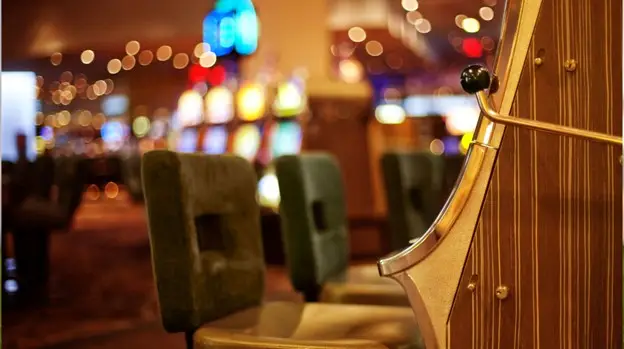In this time of digital fun that keeps changing, unexpected collaborations are reshaping traditions. One new trend getting big is top musicians partnering with game developers. This thought might seem odd at first; famous musicians working with studios known just for their digital slot games, but this mix of music and games has made a special type of fun.
It is not just about reels that spin and lights that flash anymore; now it is about designed experiences that evoke musical nostalgia, branding of artists, and loyalty from fans in new, engaging ways.
How Artists and Game Studios Are Tuning Into Each Other
When Play’n GO released a game based on the rock band KISS, it wasn’t simply slapping some band art on a spinning interface. It was a careful design, licensed music, and a fan experience, and online slots bring in this kind of partnership for much more involvement.
Players don’t just pull a lever but enter a thematic world built around the artist’s identity. And it’s not about rock legends alone. Pop culture icons like NSYNC have made their way into digital slot games, rendered through playful visuals and familiar sound snippets.
Behind each of these partnerships is a complex licensing deal. It’s not just about permission; it’s about precision. The developers have to bargain with a maze of rights owners, sometimes the artist, their label, and their publishers as well. Two major contracts involved here are the sync license and the master recording license.
The former lets the music be used alongside video or, in this case, interactive content (slot games), while the latter ensures rights for the original recorded performance. How complicated it gets depends on how popular the song is, the game’s production budget, and how prominently the music will feature.
What Do Artists Gain From This?
This may seem like just another deal on the surface, but to artists, it means much more as an extension of their brand. It generates new income outside unpredictable album sales and streaming numbers, both being very volatile in today’s crowded music world.
More strategically, it places their music in front of a different kind of consumer, one who may not be playing slot games for the demographic of a classic band like Twisted Sister or Alice Cooper, but if they see these artists in a game and become curious about them, that is a win in visibility.
Some observers might say it has a certain appeal. Having a slot game themed around your music says more than just that the artist is popular; it says the artist has lasting relevance. It is a way of being relevant without running after the current trend. The songs remain the same; the format is new.
A Growing Market for Music Licensing in Gaming
Beyond the benefits to individual artists, the greater licensing market is also changing. While sync licensing has been known for a long time in relation to movies and shows, the gaming world, particularly divisions including slot games, is establishing its own image within that system.
Old platforms, including Marmoset and Musicbed, still lead much of the licensing for videos, ads, and short films. But developers in online slots are creating particular practices suited to their needs with regard to interactive entertainment.
Some studios even take an analytic approach to adjust which artists and songs connect best with their players. For example, Play’n GO reportedly uses player behavior insights to align slot themes with audience tastes. That may sound clinical, but in practice, it means that the slot games are becoming more personalized and thoughtfully curated not only in terms of music but also in overall design and tone.
Conclusion
Music and gaming have always shared a beat, either as background scores in early arcade games or as curated soundtracks in modern video games. What is happening presently is a fine evolution of that relationship.
By licensing their music for use in online slot platforms, artists do not just diversify their income; they invite their audiences into new sensory environments through which the sound can be celebrated in a distinctly modern way.
Some may wonder if this puts music into a commodity form, harmful to its artistic value, but art has adjusted itself to new formats always. In the digital-first entertainment environment, slot games have become one of the formats.
These collaborations show that when music and interactive media harmonize thoughtfully, the end result can be something unexpectedly engaging. Not every fan turns into a player, and not every player turns into a fan, but when those worlds overlap even briefly, it creates a remarkable blend of creativity that is worth noting.


Be the first to comment